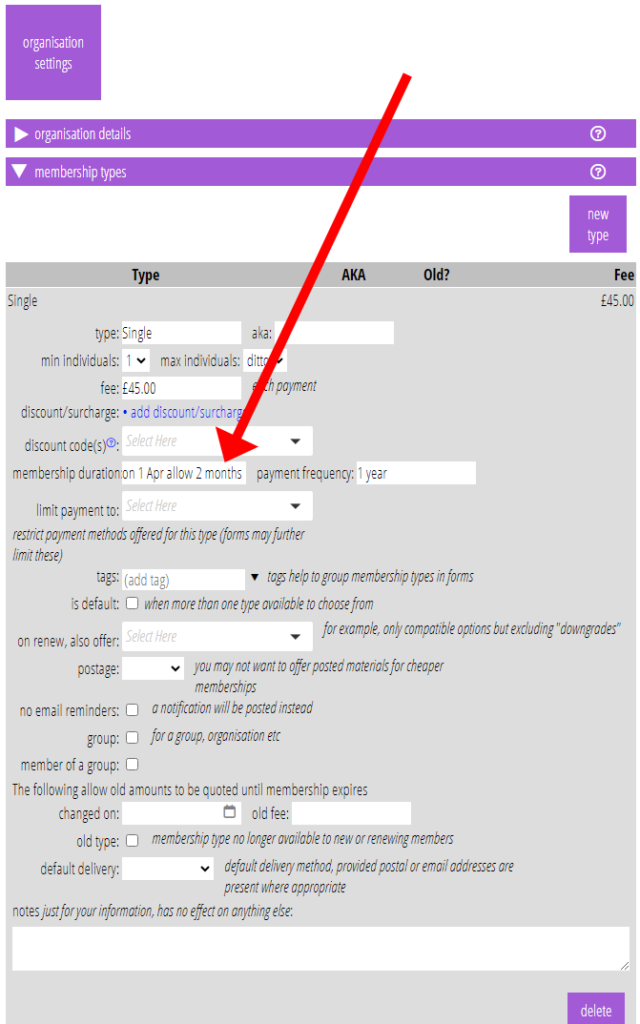Cameo now supports membership types which all expire on the same day each year. Someone who joins part way through the year only gets a partial year’s membership.
You can also arrange that they get an extended rather than limited membership if they join close to the renewal date.
Contents
Background
Cameo has so far only supported memberships which run for some period, often a year, from when they join (either application or enrolment date).
You provide the period in the definition for each membership type, in organisation settings → membership types.
We now also support organisations who require renewals to all happen at the same time. This only covers the same date each one year, not multiple years or less than a year.
Membership types
It is hard to envision some membership types running for a period and others until a fixed date. While it does work, you should not normally mix these styles of membership. Usually you’ll set the same membership period for all membership types.
For fixed-date renewals, instead of setting a validity period such as 1 year, enter on DATE where DATE is your common renewal date (Fig 1). For example:
on 1 April
The word on helps Cameo distinguish the two cases easily. The date is as flexible as a date which includes a year, though you can’t use date arithmetic! For example the following are all acceptable:
- 1 Apr
- apr 1
- 1 april
- 04-01
- 1/4 (or 4/1 for US installations)
Extended late membership
You can allow people who join close to your fixed renewal date to have their membership run to the following year. Otherwise, in the worst case, they would only get a single day’s membership.
To do this, append allow PERIOD to the renewal date in the membership type (Fig 1). PERIOD can be expressed in days, weeks or months. For example:
on 1 April allow 2 months
Someone joining on 2 Mar 2024 gets a renewal date of 1 Apr 2025, not 2024. But someone joining on 2 Jan 2024 expires on 1 Apr 2024, only getting about three month’s membership the first time. Subsequent renewals then last for a full year in either case.

Consequences for direct debit
Apart from the obvious consequence for expiry date when someone joins, there is another side effect. People paying by direct debit end up with a single payment when they join. Then their recurrent subscription payment is deferred to start on the (different) renewal date (which can be more than a year away). Direct Debits already defer regular payments in some cases: for example, when there is a joining fee or a joining discount. In those cases the amount differs rather than the date, but the principle is the same. You can combine the two: you could, for example, offer a discounted first part year (including a free first part year).
Manual payments (such as by credit card) are fine. However, we don’t recommend attempting to offer Standing Orders with this kind of membership. You would have to explain to the joining member that they have to make a single payment and also set up a recurrent payment on different dates (and possibly also for different amounts). Often these functions are in different parts of their internet banking, and can be time consuming to set up. Many people would get this wrong: it is too complicated.
Renewals themselves, though only processed annually, actually work the same as rolling renewals.
